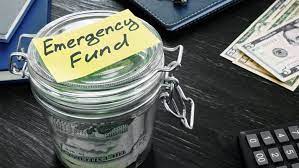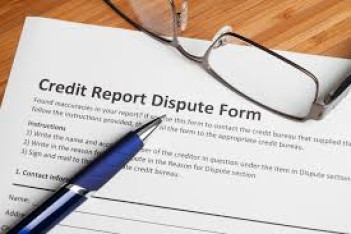Building an Emergency Fund: The Cornerstone of Financial Stability
Establishing a robust financial foundation is critical for achieving long-term financial security. One of the fundamental steps in this journey is building an emergency fund. This article delves into the importance of an emergency fund, strategies to build it effectively, and how it influences your credit score and overall financial health.
At Legal Marketplace CONSULTANT, we understand that a solid credit score starts with financial stability. By saving even a small amount monthly, you reduce reliance on credit cards and high-interest loans. Financial security today is the best protection against debt tomorrow.
Why Is an Emergency Fund Essential?
An emergency fund acts as a financial safety net that protects individuals from unexpected expenses or financial hardships. Whether it is a sudden medical bill, car repairs, or an unexpected job loss, having an accessible reserve of funds helps maintain financial stability without incurring debt.
Without an emergency fund, individuals often turn to credit cards or loans, which can lead to mounting debts and a negative impact on credit scores. This dependency creates a cycle that is difficult to escape. Building an emergency fund breaks this cycle and allows for better management of financial emergencies.
The Relationship Between Emergency Funds and Credit Scores
A solid credit score is more than just paying bills on time; it hinges on overall financial stability. When unforeseen expenses occur, individuals with an emergency fund are less likely to miss payments or rely heavily on revolving credit. By reducing the need for credit card utilization, the credit utilization ratio stays low, which positively affects credit scores.
In contrast, those without an emergency fund may use credit cards excessively to cover urgent expenses, increasing their credit utilization and potentially leading to missed payments. This behavior can result in lower credit scores, impacting the ability to obtain favorable loans or mortgages.
How to Build an Effective Emergency Fund
Building an emergency fund may seem daunting, especially for those with tight budgets. However, consistent effort over time can establish a meaningful financial cushion. Here are essential strategies for building your emergency fund:
- Set a Realistic Goal: Experts typically recommend saving three to six months’ worth of living expenses. Assess your monthly costs to determine an appropriate target.
- Start Small: Even a small monthly contribution can grow over time due to the power of compounding and disciplined saving.
- Automate Savings: Set up automatic transfers to your emergency fund savings account to ensure consistent contributions and avoid the temptation to spend.
- Cut Unnecessary Expenses: Review your budget to identify areas where spending can be reduced and redirect those funds into your emergency savings.
- Use High-Yield Savings Accounts: Keep your emergency fund in an easily accessible, high-yield account to maximize earnings while maintaining liquidity.
- Avoid Using the Fund for Non-Emergencies: Preserve the fund strictly for unexpected financial hardships to maintain its purpose and availability.
Common Mistakes to Avoid When Building an Emergency Fund
- Neglecting to define what constitutes an emergency, leading to unnecessary withdrawals.
- Using the fund as a substitute for regular savings or retirement planning.
- Setting unrealistic goals, which can discourage consistent saving.
- Ignoring inflations effects by keeping funds in low-interest accounts indefinitely.
- Failing to replenish the fund after use, leaving yourself vulnerable to future emergencies.
Integrating Legal Assistance in Financial Planning
Financial planning often involves understanding various legal aspects such as contracts, loan agreements, and credit rights. At Legal Marketplace CONSULTANT, we provide expert legal guidance to ensure your financial decisions comply with applicable laws and protect your interests.
If you require professional legal help in managing your finances or understanding financial regulations, reach out to us through the communication channels provided in our bio or send a private message. Our experienced legal team is ready to assist you in safeguarding your financial future.
Benefits of Financial Stability Beyond Credit Scores
While a good credit score is crucial, financial stability offers numerous other benefits:
- Peace of mind in knowing that unexpected expenses will not derail your financial progress.
- Greater negotiating power with lenders and service providers due to better creditworthiness.
- Ability to invest in opportunities without the burden of debt.
- Reduced financial stress that improves overall wellbeing and decision making.
- Enhanced capacity to support family and dependents in times of need.
Practical Tips for Maintaining Your Emergency Fund
Maintaining an emergency fund requires discipline and periodic review. Consider the following tips:
- Regularly reassess your living expenses to adjust your fund size accordingly.
- Keep the fund liquid and accessible but separate from your everyday checking account to avoid impulsive spending.
- Replenish the fund immediately after any withdrawals to restore your safety net as quickly as possible.
- Avoid investing your emergency funds in high-risk or illiquid assets.
- Educate yourself continuously about personal finance and legal matters through trusted resources.
Case Studies: Real-Life Impacts of Emergency Funds
Consider the example of Jane, a single mother who faced unexpected medical expenses in 2025. Thanks to her well-established emergency fund, she was able to cover her costs without resorting to high-interest credit cards, protecting her credit score and maintaining financial stability throughout the challenge.
Alternatively, Michael, a young professional without an emergency fund, found himself accumulating credit card debt after his car broke down unexpectedly. The high-interest payments led to a declining credit score, making it harder for him to secure better loan terms in the future.
Building and maintaining an emergency fund is a crucial step toward financial stability and improved credit health. By committing to disciplined saving habits and understanding the legal aspects of finance, individuals can safeguard their future against unforeseen financial hardships.
At Legal Marketplace CONSULTANT, we are dedicated to supporting your financial wellbeing with expert legal advice. Secure your financial future today by starting your emergency fund and seeking professional guidance whenever needed.
Legal Marketplace CONSULTANT — your trusted partner in comprehensive legal support for business and individual financial matters. Our team includes expert lawyers, legal advisors, tax consultants, auditors, and accountants committed to your success.































